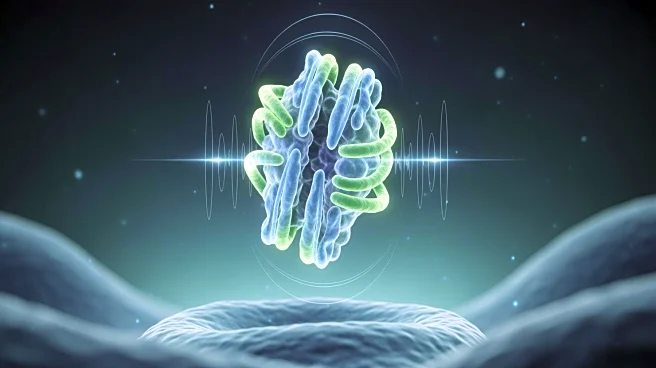What's Happening?
Researchers at Ludwig Maximilian University of Munich have uncovered how ribosomes can alert cells to stress conditions. Ribosomes, known for protein synthesis, also detect cellular stress and trigger
protective actions. The study, published in Nature, reveals that ribosome collisions activate the ribotoxic stress response, which can repair damage or initiate cell death. The protein ZAK plays a central role in this process, detecting ribosome collisions and activating signaling pathways.
Why It's Important?
Understanding the ribosome's role in stress response provides valuable insights into cellular biology and disease mechanisms. This knowledge could lead to new therapeutic strategies for conditions linked to cellular stress, such as inflammatory diseases and cancer. By elucidating how ribosomes detect and respond to stress, researchers can develop targeted interventions that enhance cellular resilience and improve health outcomes. The study also highlights the intricate interplay between cellular components in maintaining homeostasis.









